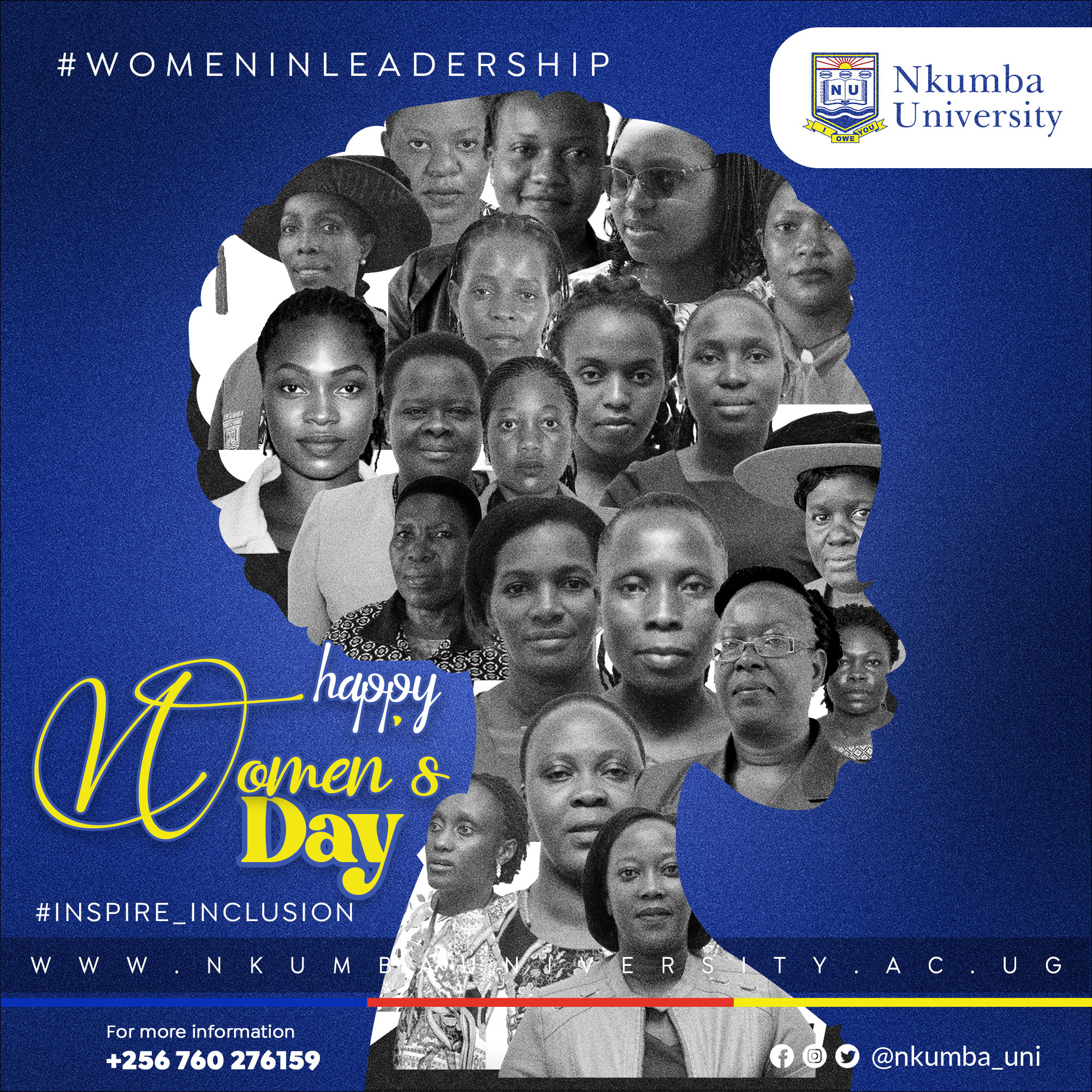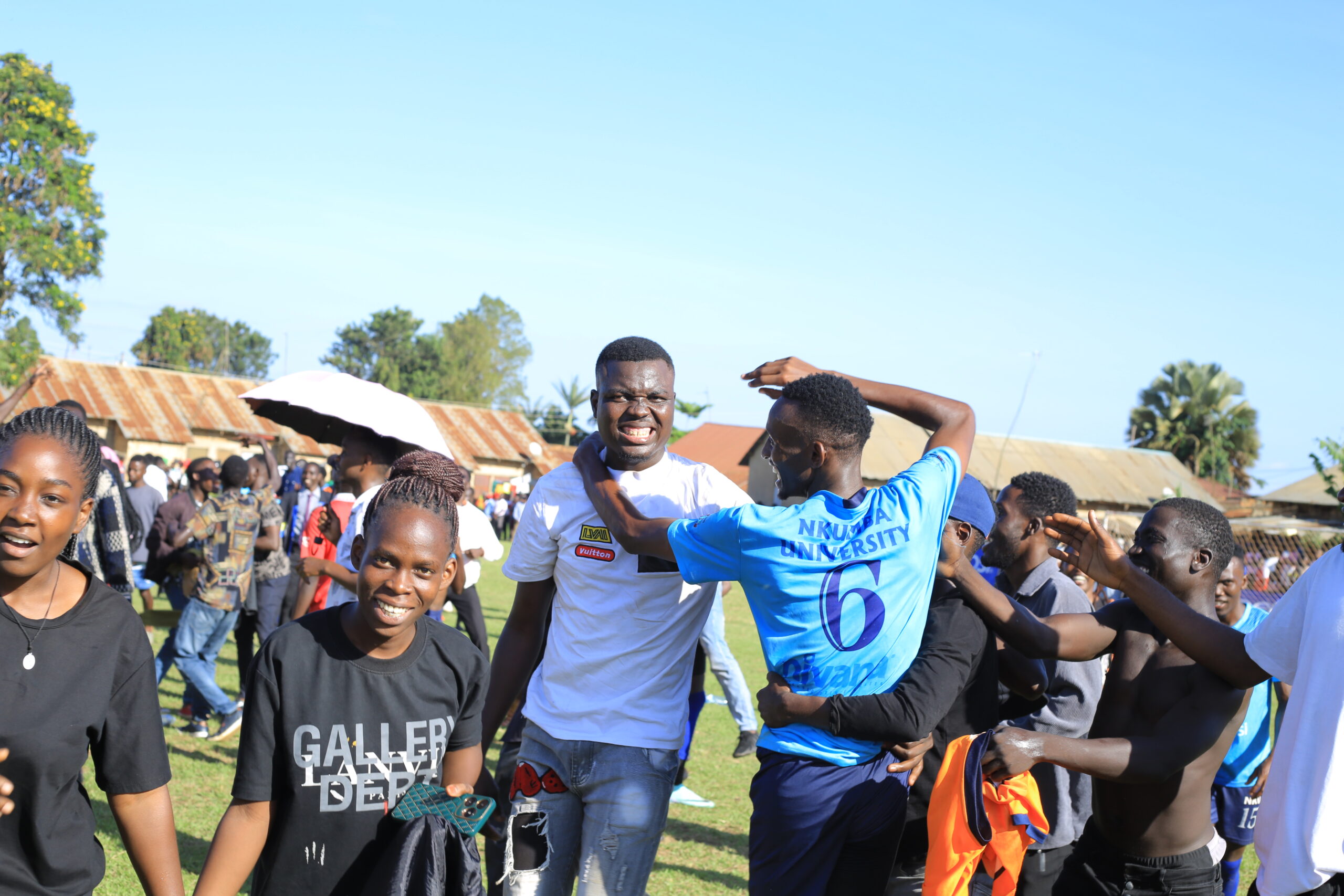Dr. Susan Nakanwagi, a senior lecturer at Nkumba University has tasked the public to unite and inspire inclusion. Dr. Suzan said this while delivering the Women’s day message on behalf of the University Vice Chancellor, Prof. Jude Lubega.
“It is International Women’s Day and I am honored to address you in the capacity of the Vice Chancellor as we commemorate the remarkable achievements, resilience, and contributions of women across the globe,” said Dr. Susan.
Adding that, “Let us stand united in our commitment to inspire inclusion and make Nkumba University a center for diversity, equality, and equity for all. Together, we can break barriers and inspire inclusion.”
While commending the University for creating a campus culture that embraces diversity, Dr. Susan noted that, “this year’s International Women’s Day theme, “Inspire Inclusion,” resonates deeply with Nkumba University’s commitment to creating a more academically equitable world where all members are empowered to thrive and succeed regardless of gender.”
She reminded community members of the need to foster an environment where every voice is heard, and every individual is valued. “Inclusion goes beyond mere tolerance; it is about actively recognizing, appreciating, and celebrating the unique perspectives and talents that each person brings to our academic community, by creating an inclusive space, we not only enrich our learning environment but also contribute to the broader goal of creating a just and equitable society.”
Dr. Susan lauded her female counter parts for standing strong amidst stereotypes, and thanked all men striving to empower women, “to the incredible women within our university community doing tremendously well to silence stereotypes, your achievements, and spirited strides to stand against all odds is an inspiration to us- thank you, and to our male colleagues going out of their way to ensure equity for all, your support and allyship are crucial in building a truly inclusive community where everyone can flourish.”

Celebrated annually on March 8th, the International Women’s Day (IWD) serves as a focal point in the women’s rights movement providing an opportunity for equal rights activists to highlight issues such as gender equality, reproductive rights, and the fight against violence and abuse directed at women.
IWD EVOLUTION.
On February 28, 1909, a day originally known as “National Woman’s Day” was proposed by activist Theresa Malkiel in New York, USA. It was loosely based on an urban legend commemorating a protest by women garment workers in New York City on March 8, 1857.
Inspired by Malkiel, German Socialist Luise Zietz suggested an annual Women’s Day, which was quickly seconded by fellow activist Clara Zetkin and supported by Kate Duncker.One hundred women delegates from 17 countries agreed with this suggestion as a means to continue promoting women’s rights, including the right to vote.
On March 19, 1911, International Women’s Day was officially marked for the first time. More than one million people celebrated in Austria, Denmark, Germany, and Switzerland.
Meanwhile, in Russia, women demanded the right to vote, fought against sex discrimination in the workplace, and advocated for the ability to hold public office. In 1913, International Women’s Day was recognized in Russia for the first time. In St. Petersburg, women went on strike for “Bread and Peace,” demanding an end to World War I, Czarism, and food shortages. The date was March 8 February 23 on the Gregorian calendar. Workers walked out of factories, leading to mass strikes and the abdication of Nicholas II just 7 days later.
Russian women were subsequently given the right to vote. In recognition of their heroism, International Women’s Day was declared a non-working holiday.
Global Spread and UN Recognition
Initially celebrated in Communist countries and organizations, International Women’s Day began to spread. In 1922, it reached China, where March 8th was declared an office “half-day of work” for women. The demand for women’s rights continued to grow, gaining support and highlighting poor living conditions for many women.
The United Nations began celebrating International Women’s Day in 1975, which was declared “International Women’s Year.” In 1977, the United Nations invited members to proclaim March 8th as the UN Day for Women’s Rights and World Peace.
Today, International Women’s Day continues to be celebrated worldwide on March 8th.
The 2024 campaign theme Inspire Inclusion emphasizes the importance of diversity and empowerment in all aspects of society which underscores the crucial role of inclusion in achieving gender equality.
Briefly about Dr. Suzan Nakanwagi
Dr. Susan is the Program Lead for Natural Resources Governance and Sustainability at Regenerate Africa in Uganda, a senior lecturer at Nkumba University and an alumnus of the prestigious Leaders in Extractives and African Development (LEAD) Programme of the University of Cape Town.
She holds a PhD and LLM from the Centre for Energy, Petroleum, Mineral Law and Policy (CEPMLP), University of Dundee – UK.
The New Vision Newspaper has ranked her in Uganda’s ‘Top 40 under 40’ for two consecutive years.


















Discussion about this post